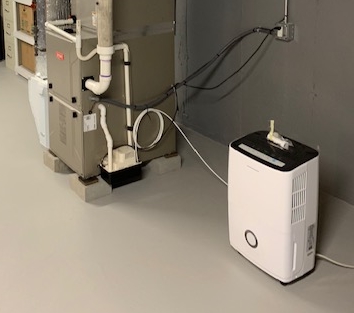Summer To-Do List
Keep your home safe, happy, and healthy by at least checking off our list of seasonal to-dos.

June:
- Seal your deck. You will need 3 consecutive warm, sunny days. One to dry it out, one to clean and scrub it (with 24 hours of drying time), and one to apply the sealer.
- Hire a certified chimney sweep. Cleaning and inspecting the chimney now, instead of in the cooler fall months, allows for ample time to complete any necessary repairs. It will also be easier to schedule with them since many people wait until just before the heating season.
- Clean your home’s exterior with a mild detergent and a water hose. Pressure washers are great tools but when it comes to siding, they are so powerful they can force water underneath, encouraging the growth of mold and mildew.
- Clean your dryer vent system. This is a key task for fire safety. Lint is extremely flammable. You’ll want to open up the back of the dryer and clean in there too. If you’re looking for a professional to do it, try asking local duct cleaners.
- Paint your patio and deck furniture to enjoy all summer season long.
July:
- Check for peeling or cracked paint on exterior walls. South and west-facing walls deteriorate faster and require more frequent repainting than north and east-facing ones.
- Repair any cracks or missing mortar in your brick or masonry siding. You can use fresh mortar or concrete caulk.
- Check your roof, inside and out, for cracks, loose or missing shingles, or signs of leaks. Pay close attention to valleys, around chimneys, and around vent stacks.
- Make sure your motion-detector lighting systems and automatic timers are all properly set and working. You’ll especially want the automatic timers working if you plan to go away on vacation.
- Trim shrubs and branches so that they are not coming in contact with your siding
- Repair your driveway where necessary. Cracks in concrete can be sealed with an epoxy patching material, asphalt can be repaired with an asphalt material, and driveways should be sealed every other year.
August:
- Inspect your foundation for signs of termites. Look for tunnels and dirt bridges. If you suspect them, call an exterminator right away.
- Clean the condenser coils on the back or underneath your refrigerator. You can simply use a vacuum with a narrow nozzle.
- Make any necessary faucet repairs. Check for any worn washers and signs of leaking both on top and underneath.
- Clean your range hood and either clean or replace the filter.
- If you’re planning for any interior remodeling projects this fall, start the planning and estimate collection now so they can be done early in the season.
- Do you have that hammering noise in your pipes? Drain the plumbing system. Open the uppermost faucet (or the furthest from the water meter) and the lowest most faucet (or closest to the meter). Drain the system allowing water to flow into a lower level sink or floor drain. This restores air to the chambers. Close the faucets in the order that you opened them.
…Of course there’s always more fun DIY’s and home maintenance to be done, but this will get you a fantastic start to a great summer season.

